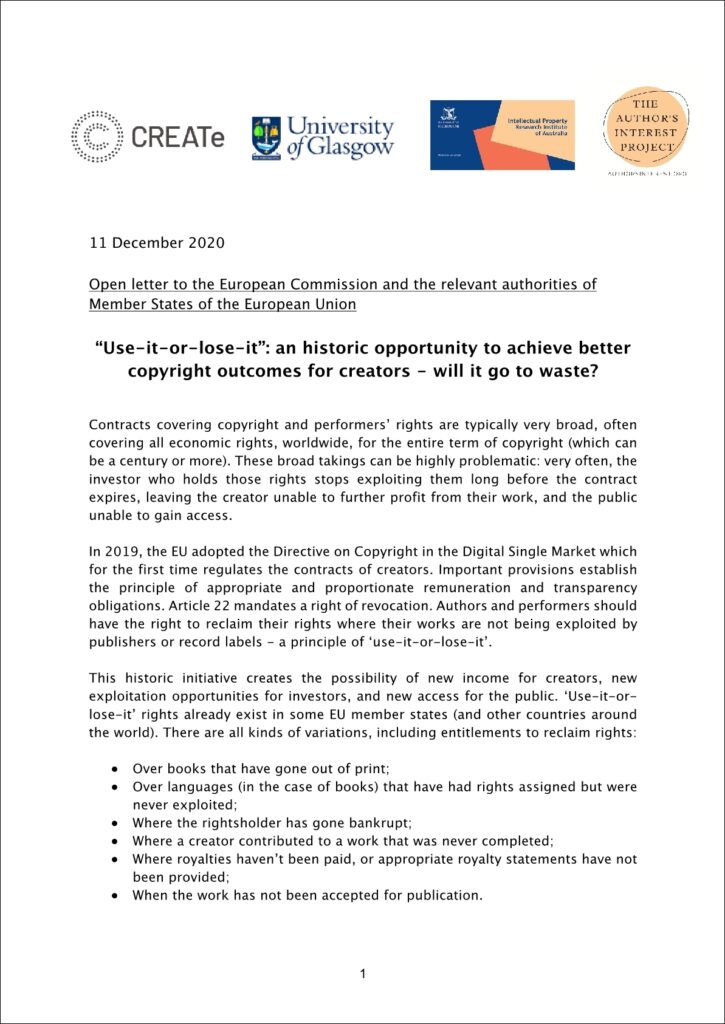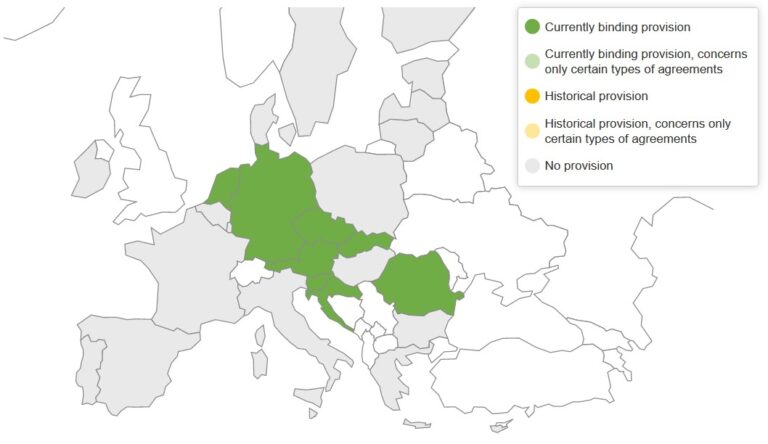A group of leading international academics has published an open letter concerning the right of revocation. This new right, regulating copyright contracts, is provided for in article 22 of the recent EU Directive on Copyright in the Digital Single Market.

The letter addressed to the European Commission and the relevant national authorities of EU Member States, identifies the revocation right as “an historic opportunity to achieve better copyright outcomes for creators”, and calls upon governments to explicitly address the right in their consultations about implementing the Copyright Directive.
The letter builds on a collaborative research project between CREATe and the Intellectual Property Research Institute of Australia (IPRIA), University of Melbourne, with the reCreating Europe consortium. The project maps all provisions allowing authors and performers to reclaim their rights. Such laws are already a part of national laws of many EU Member States in some form. What are the lessons that can be carried forward into article 22’s implementation process?
Interventions may include very different entitlements to reclaim rights, for example over books that have gone out of print, over unpaid royalties or where a rightsholder has gone bankrupt.
The research uncovered more than 150 currently binding provisions. The majority of the EU Member States offer some revocation rights to their creators, but they are often limited to certain types of works or agreements. Termination is only one of possible effects of reversion provisions. Most of the rights are not brought to effect automatically, but require creator’s action to make changes to the contractual relationship, which means that the right can be a starting point for renegotiating contracts. Current provisions typically are modelled on analogue practices, and do not reflect digital uses.
The open letter argues that the right of revocation introduced by art. 22 of the Copyright Directive offers a “once-in-a-generation opportunity” to secure new income for creators, new exploitation opportunities for investors and new access for the public. It could help to reclaim culture that would otherwise be lost and provide creators with meaningful new rights to better their position in a post-COVID world. The letter draws attention to the thorny issue of digital exploitation: how should the law treat works which are technically available online without being meaningfully exploited?
The results of the collaborative project of CREATe, IPRIA and reCreating Europe can be explored via a Reversion Rights Resource which we are launching today. A map feature explores different revocation rights for authors and performers, enabling comparisons across Europe.

A complete record of reversion rights along with a commentary on general trends, characteristics, and categories of mapped reversion rights is available in a new CREATe working paper ‘Reversion Rights in the European Union Member States’ by Dr Ula Furgał, a postdoctoral researcher at CREATe. The full paper can be downloaded here.
This post was first published on the CREATe blog and is reproduced here with the kind permission of the author.
_____________________________
To make sure you do not miss out on regular updates from the Kluwer Copyright Blog, please subscribe here.
Kluwer IP Law
The 2022 Future Ready Lawyer survey showed that 79% of lawyers think that the importance of legal technology will increase for next year. With Kluwer IP Law you can navigate the increasingly global practice of IP law with specialized, local and cross-border information and tools from every preferred location. Are you, as an IP professional, ready for the future?
Learn how Kluwer IP Law can support you.


